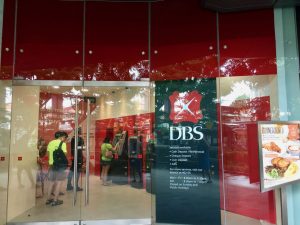Wilmar and DBS ink Singapore’s first SORA-based loan for the agribusiness industry
DBS and Wilmar International Limited (Wilmar), Asia’s leading agribusiness group, have inked the agribusiness industry’s first corporate loan agreement pegged to the Singapore Overnight Rate Average (SORA). At the start of each interest period, Wilmar will also have the option to enter into a SORA interest rate swap (IRS) to give certainty of interest rates. This is the industry’s first SORA loan coupled with an IRS.
 The SGD 200 million SORA-based loan and the IRS will be yet another milestone in the nation’s transition roadmap towards adopting SORA as the new interest rate benchmark for the Singapore Dollar cash and derivatives markets.
The SGD 200 million SORA-based loan and the IRS will be yet another milestone in the nation’s transition roadmap towards adopting SORA as the new interest rate benchmark for the Singapore Dollar cash and derivatives markets.
Table of Contents
Given SORA’s growing importance as a key interest rate benchmark in SGD financial markets, it supports the Association of Banks in Singapore and the Singapore Foreign Exchange Market Committee (ABS-SFEMC)’s efforts to develop new SORA-based markets. It also complements the industry-led transition roadmap, set out by the Steering Committee for SOR Transition to SORA (SC-STS).
On 30 August 2019, ABS-SFEMC announced that the discontinuation of the London Interbank Offered Rate (LIBOR) would affect the sustainability of the SGD Swap Offer Rate (SOR) and held a public consultation on the use of SORA as the new interest rate benchmark to replace SOR. More recently, the Steering Committee for SOR Transition to SORA (SC-STS) published the response to feedback on 19 March 2020, together with a roadmap for the transition. SORA is a transaction-based interest rate benchmark underpinned by the SGD overnight interbank funding market and has been published by the Monetary Authority of Singapore since July 2005.
The SORA-based loan facility’s interest rate, which references SORA, comprises two components: (1) a compounded daily SORA rate calculated in arrears and (2) an applicable margin.
SORA is a backward-looking overnight rate as compared to forward-looking reference rates commonly used for loan facilities in Singapore, such as the SGD Swap Offer Rate (SOR) where the interest rate is determined at the start of the interest period. To determine the interest rate of a SORA-based loan facility, the daily SORA rates are compounded in arrears and the interest rate is determined by the end of the relevant interest period.
Mr Charles Loo, Wilmar’s Chief Financial Officer, said that it is in Wilmar’s DNA to be entrepreneurial and innovative. “We are delighted to have partnered DBS to support Singapore’s transition to new benchmark interest rates with this new SORA facility. Wilmar’s SORA-based loan, a first for the agribusiness industry, will put us in good stead to ride the wave of interest rate reforms and drive better understanding and greater adoption of risk-free rates in general, which is more stable and robust.”
Ms Tan Su Shan, Group Head, Institutional Banking Group at DBS, said that the SORA-based loan builds momentum to facilitate the industry’s transition towards adopting SORA as a new interest rate benchmark in cash and derivatives markets.
“We are very pleased to have supported Wilmar, a long-standing client, in leading the market in the transition to SORA. Forward-looking companies like Wilmar are positioning themselves for the future by tapping SORA financing early. This means that they will have a greater understanding of how SORA works and will be at the forefront of innovative SORA-based financing solutions as market adoption increases. We’re honoured to be able to partner large conglomerates like Wilmar to transition to a new interest rate environment which will be more robust as SORA is underpinned by a deep and liquid overnight interbank funding market.”
Mr Andrew Ng, Group Head, Treasury & Markets at DBS said that the SORA IRS demonstrates DBS’ commitment to increase liquidity in SORA-derivatives. This will allow clients like Wilmar to continue to hedge their loan exposures and facilitate a smoother transition into the new benchmark.
Earlier this year, DBS was the first financial institution in Singapore to successfully price the issue of a SORA-referenced floating rate note.
How the 3-month Compounded SORA package works
MAS publishes SORA for a given business day in Singapore by 9.00am on the next business day in Singapore. Alongside SORA, the Compounded SORA rates for the 1-month, 3-month and 6-month tenors are also published.
The OCBC 3-month Compounded SORA Package will reference the 3-month Compounded SORA rate, published by MAS, to compute the monthly loan instalment. The rate will be updated every month instead of every three months as is the case for the 3-month SIBOR-based home loan.
The first applicable 3-month Compounded SORA rate will be the one published by MAS on the date that the bank disburses the loan, and will apply for a period of one month. If the 3-month Compounded SORA is less than zero, zero will be applied.
For each subsequent 1-month period, the applicable 3-month Compounded SORA will be the rate published by MAS on the first day of the 1-month period (rate review date) and will apply for such subsequent 1-month period.
This provides certainty to the customer as the customer will be notified at the start of the month of the applicable interest rate and instalment amount that will be charged at the end of the month. This arrangement helps the customer better plan his or her finances.
The 3-month Compounded SORA rate applicable on a Saturday, Sunday and Public Holiday would be the last published 3-month Compounded SORA rate. For example, if the rate review date falls on a weekend, the 3-month Compounded SORA rate applied for the next 1-month period would be the 3-month Compounded SORA rate published on the working Friday of that week.







